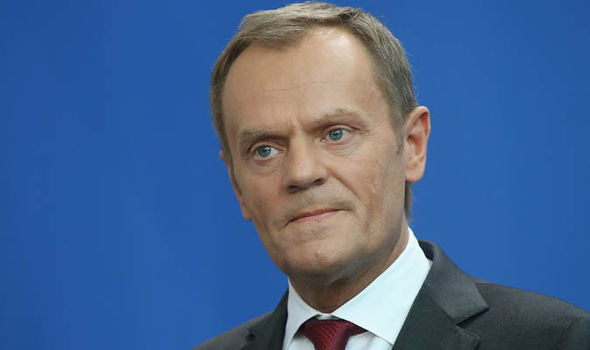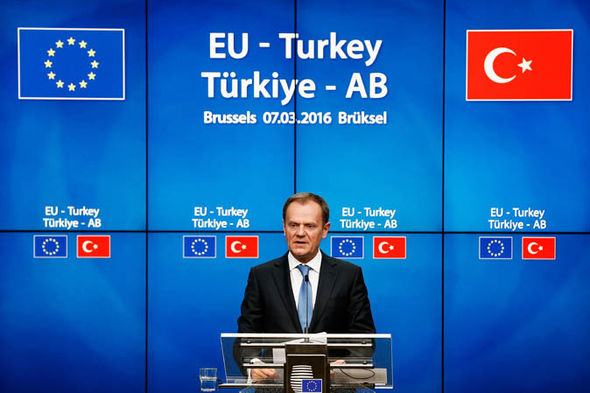European Council president Donald Tusk sought to assuage recent criticism of its leader Recep Tayyip Erdo?an and his increasingly authoritarian political system in an interview with the German newspaper Bild, pointing out the challenges faced by Ankara. Tusk said: “Turkey is the most reliable partner in the region and it’s in a difficult situation: weekly terror attacks, insecure borders with Syria, Iraq and Iran. On top of that, more than two million refugees”.
Earlier, he he hinted the migrant deal currently with Turkey was on the brink of collapse, as he said the EU would not sacrifice its values to ensure Ankara’s continued cooperation in returning migrants and refugees to the country. The migrant readmission agreement, under which new arrivals are returned from Greece to Turkey, has reduced the number of boats landing on Greek shores. Critics of the agreement have accused EU politicians of turning a blind eye to an intensifying crackdown on free speech and media in Turkey in return for Ankara’s cooperation. The country’s thin-skinned president Erdogan, who has sued more nearly 2,000 people for insulting him, has repeatedly threatened to “open the floodgates” if Turkey was not granted visa-free travel to Europe’s Schengen area.

Turkey has yet to fulfil several of the benchmarks required for visa-free travel. Crucially, the EU has demanded Ankara change its terror legislation, which currently allow individuals, including journalists, to be prosecuted for “terror propaganda”. The Turkish government has refused to alter any laws, citing a heightened terror threat from Islamic State and Kurdish militants. Tusk said: “Nothing in life is for free, including this agreement. But we will not put up with violations of press freedom and freedom of expression.” “Turkey”, he added, would receive visa-free travel only “once they have fulfilled all conditions without exception”.
The possibility of Turkey’s accession has become a polarising issue in the week before the UK votes on whether to remain a member of the EU, with Brexit supporters fearing a wave of Muslim immigration should Turkey join. However, Tusk said Turkey would not become a member “in its current state”.
While negotiations for Turkey’s membership have been ongoing since 2005, the country is unlikely to successfully complete its application soon: of 35 chapters necessary to join, only one has so far been closed. Even if Turkey completes all chapters, every EU member state — including Britain, if it chooses to stay in the bloc — has a veto on any new country’s membership. However, David Cameron has repeatedly been quoted as saying he supports Turkey’s accession.

Speaking to Bild, Tusk also warned of negative outcomes of a potential Brexit, going as far as to say that Britain leaving the EU “could in fact be the start of the process of destruction of not only the EU but also of the Western political civilisation”.
He echoed Mr Cameron’s concern that renegotiating Britain’s post-leave deal with the EU would take years to work out. But Tusk emphasised a Brexit would have far-reaching consequences for the entire continent. He said: “On the day of the Brits’ exit, our external enemies would drink Champagne. “We should do everything to spoil this party.”






